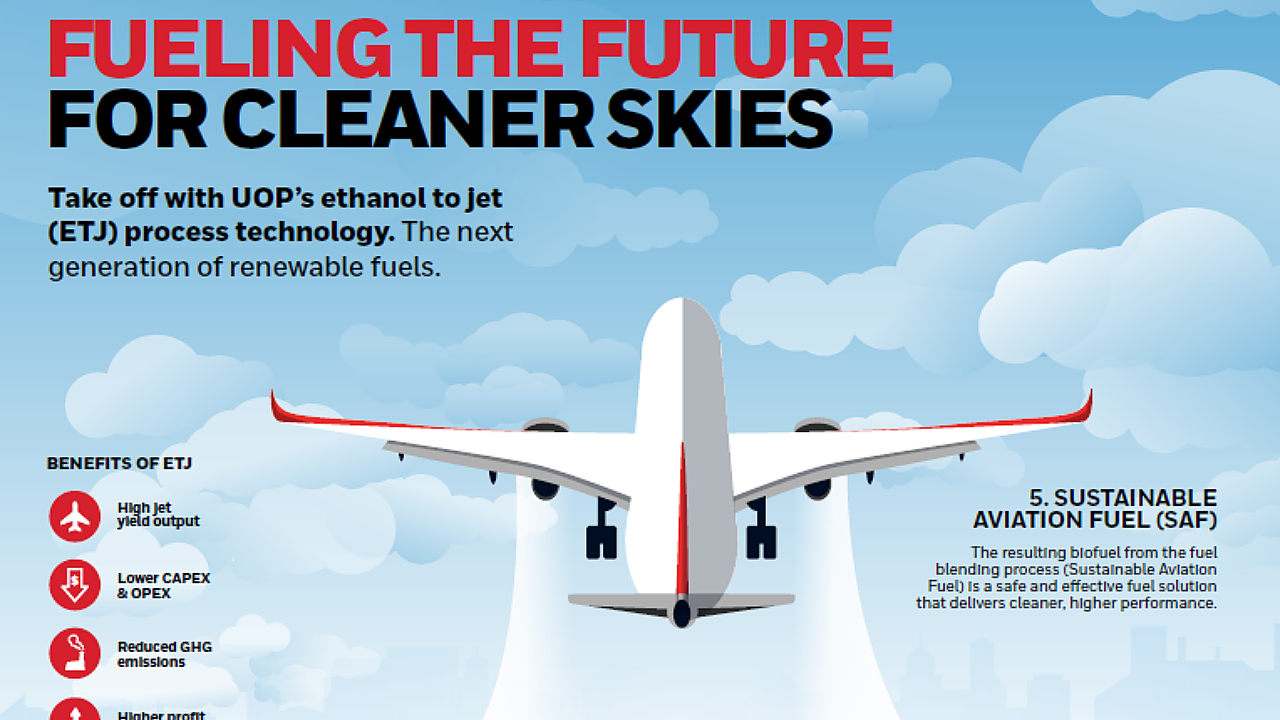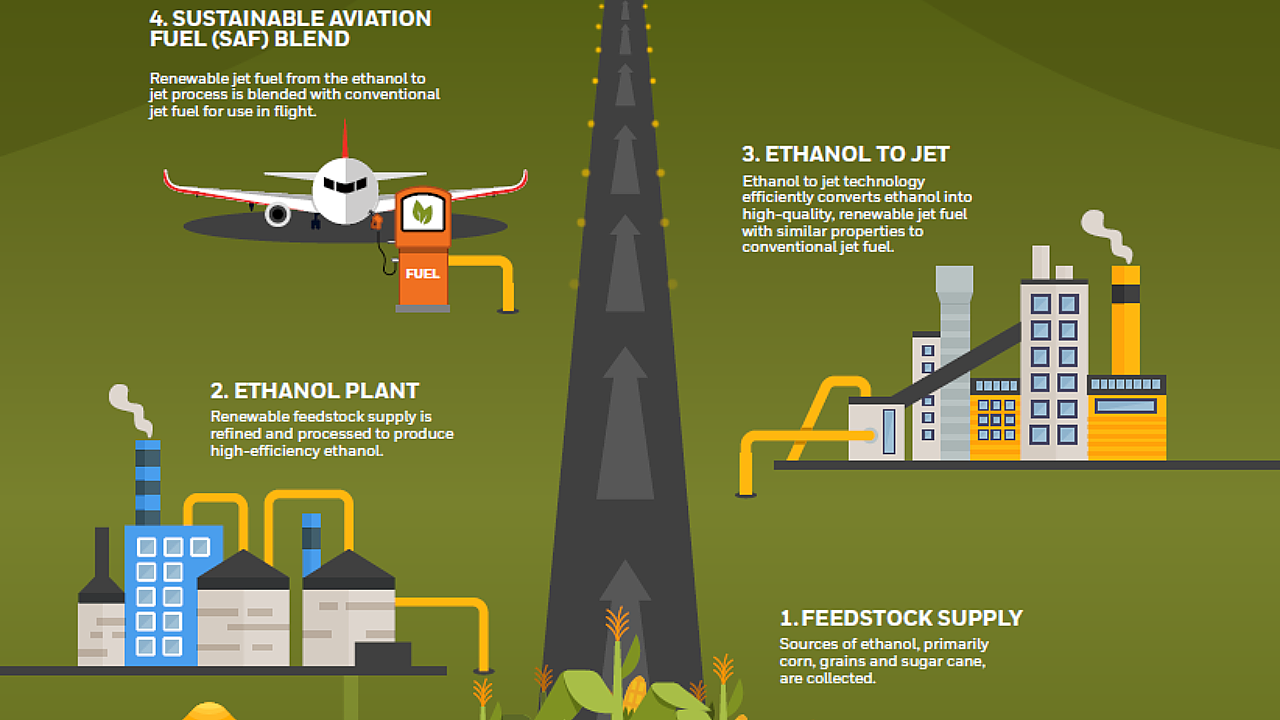
Honeywell has announced a new, innovative Ethanol-To-Jet Fuel (ETJ) processing technology that will allow producers to convert corn-based, cellulosic, or sugar-based ethanol into Sustainable Aviation Fuel (SAF). Development for this technology was undertaken at the Honeywell India Technology Center in Gurugram.
“At COP26, India committed to getting 50% of its energy requirements from renewable sources,” said Ashish Gaikwad, Vice President and General Manager, Honeywell UOP India. “India has already identified biofuels as one of the ways to achieve energy security and could look at ETJ as an enabler to India’s 2070 emission reduction targets,” he further said.
Developed by engineers at Honeywell India Technology Center in Gurugram, this technology provides the country with an alternative to help reduce reliance on fossil fuels for India’s growing aviation sector, Gaikwad said.
Jet fuel produced from Honeywell’s ETJ process can reduce greenhouse gas (GHG) emissions by 80% on a total lifecycle basis (depending on the type of ethanol feedstock used), compared to petroleum-based jet fuel, the company claimed.
A 2021 life-cycle analysis by the US Department of Energy’s (DOE) Argonne National Laboratory concluded that ETJ conversion, combined with other technologies such as Carbon Capture And Sequestration (CCUS) and smart farming practices, can result in negative GHG emissions compared to petroleum-based jet fuel.
“Honeywell pioneered SAF production with its Ecofining technology, and our new ethanol-to-jet fuel process builds on that original innovation to support the global aviation sector’s efforts to reduce GHG emissions and meet SAF production targets with an abundant feedstock like ethanol,” said Barry Glickman, Vice President and General Manager, Honeywell Sustainable Technology Solutions.
“Honeywell’s ethanol- to-jet process, when used as a standalone or when coupled with Honeywell carbon capture technology, is ready now to provide a pathway to lower carbon-intensity SAF,” Glickman said.

Limited Supply of SAF
While demand for SAF continues to grow, the aviation industry is challenged by limited supplies of traditional SAF feedstock such as vegetable oils, animal fats and waste oils. Ethanol offers producers a widely available, economically viable feedstock.
Honeywell said its ready-now technology uses high-performance catalysts and heat management capabilities to maximise production efficiency, resulting in a cost-effective, lower carbon intensity aviation fuel.
Honeywell’s ETJ design can also benefit petroleum refiners and transportation fuel producers as it is purpose-built to enable conversion of current or idle facilities into SAF production plants, potentially maximising use of exiting sites for SAF production to meet the growing market demand.
Also Read
Airbus Selects Honeywell For Flight Management System